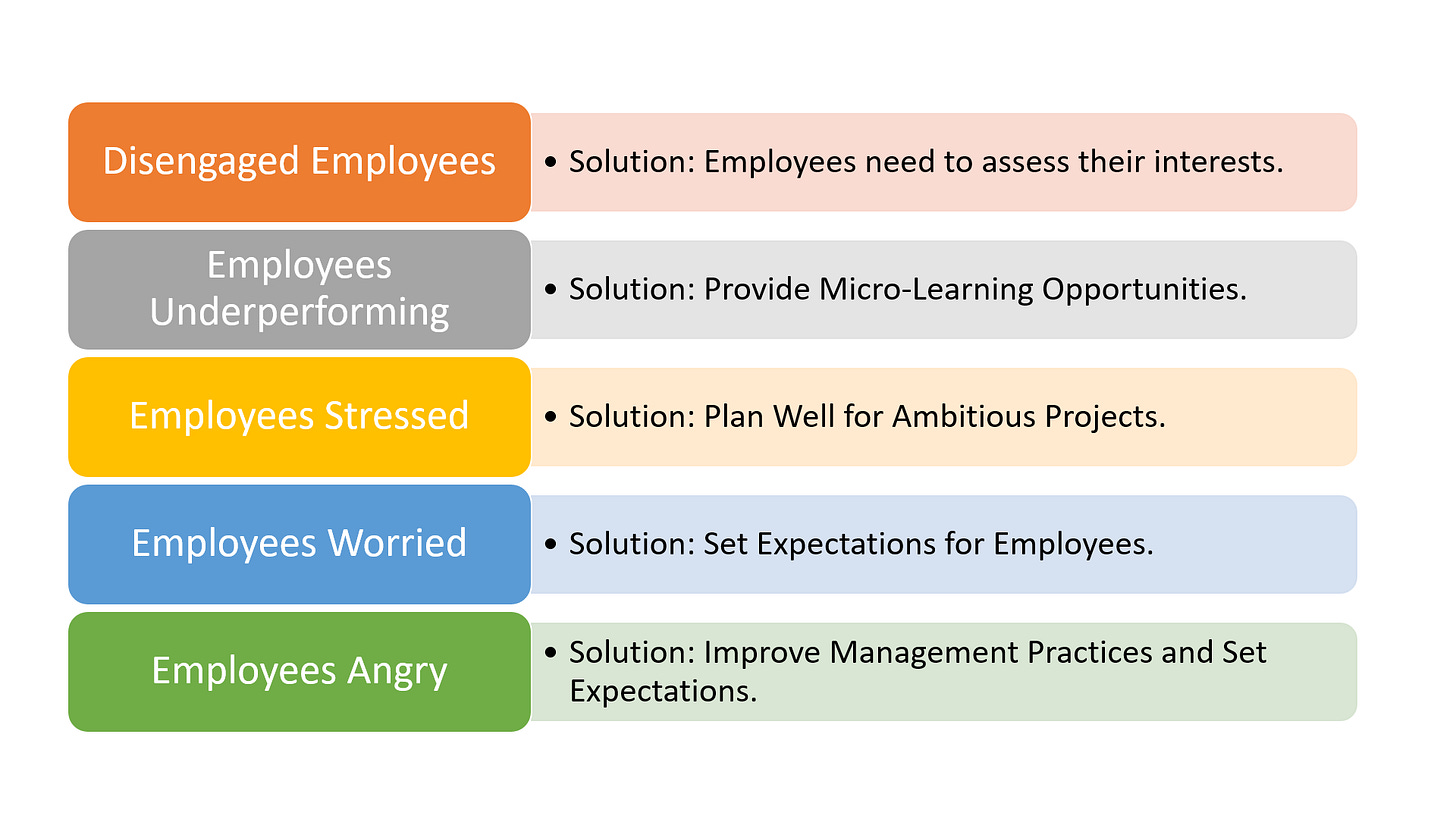Insights from the Gallup Global Workplace Report
Employee Engagement, Perceptions and Well-being
In this issue, we will discuss certain insights from the State of the Global Workplace 2022 Report by Gallup. The findings are summarized by geographic regions. You can download the full report at this link. The report is based on surveys that Gallup has conducted annually, since 2005. The Survey is conducted by either face-to-face or telephone interviews, and has covered more than 160 countries and areas since its inception. The target is the entire civilian, noninstitutionalized, population, of 15 years of age or older. Gallup notes that with some exceptions, all samples are probability-based and nationally representative. The Pandemic has certainly had a profound impact on work and life perceptions for employees. Currently the death toll stands at more than 1 million in the United States and more than 6 million globally.
Let’s start with Engagement. Only 33% of respondents reported being engaged in the United States and Canada. That number however, is the highest of all regions. Only 21% of respondents, reported, being engaged globally. Only 14% of employees reported as engaged in Europe whereas the number is slightly higher for Australia and New Zealand at 17%. In South Asia, the number is 27% whereas in Sub-Saharan Africa the number is 21%. One of the reasons why the number is so low is that many employees are in jobs or careers by necessity, and not by careful thought or choice. To really enjoy and thrive in a career, one must evaluate skills thoroughly, and then choose jobs and careers that they are likely to enjoy most. Skills can be categorized as Basic Skills, Physical Skills, Personal Effectiveness Skills, Creative Skills and Technical Skills as defined by CareerOneStop. In previous issues, we have discussed Early-Career certifications for a number of fields such as Airport Management, Cybersecurity, Insurance, Payroll, Purchasing, Retirement Plans Administration, Supply Chain and Technology. Fully understanding one’s skills, and then choosing a career that one would like enjoy and thrive in, would increase engagement numbers significantly.
When asked whether employees were thriving, 60% of respondents in the United States and Canada reported that they were thriving. Globally, that number is at 33%. The number is highest for Australia and New Zealand at 63%. The numbers are lowest for South Asia at 11% and Sub-Saharan Africa at 21%. 47% of respondents reported as thriving in Europe whereas 23% reported as thriving in the Middle-East and North Africa. To thrive, employees must be well-trained. Gallup found that employees care about how they experience work i.e., how they are trained, managed and treated. How can companies ensure that employees are well-trained? One key solution is Micro-Learning opportunities and Spaced-Repetition Quizzes. Based on user-satisfaction ratings, G2 reported that top Micro-Learning Platforms include EdApp and Code of Talent. Spaced-repetition quizzes delivered to employees at various points during the day, reassure employees, that they are being trained well, and are being given all the tools they need, to succeed and thrive. It is not surprising that the numbers in this area are lowest for South Asia and Sub-Saharan Africa. Businesses in the aforementioned regions have numerous opportunities to increase employee training and increase employee satisfaction.
When asked about daily stress levels, 50% of the respondents in the United States and Canada answered in the affirmative. Globally, the number is at 44%. The number is 39% for Europe and 31% for Southeast Asia. There is no question that if employees are engaged and thriving, they will not experience high daily stress levels. When asked about anger, 18% of the respondents in the United States and Canada answered in the affirmative. Globally, the number is at 21%. 34% of respondents in South Asia reported being angry whereas 32% of respondents in the Middle East and North Africa reported being angry. The Gallup Survey also provided insights into employee sadness, respect, corruption and other attributes.
The numbers can certainly be improved. Employees need to give careful thought to their jobs and careers. Employers need to provide effective and engaging training opportunities.



